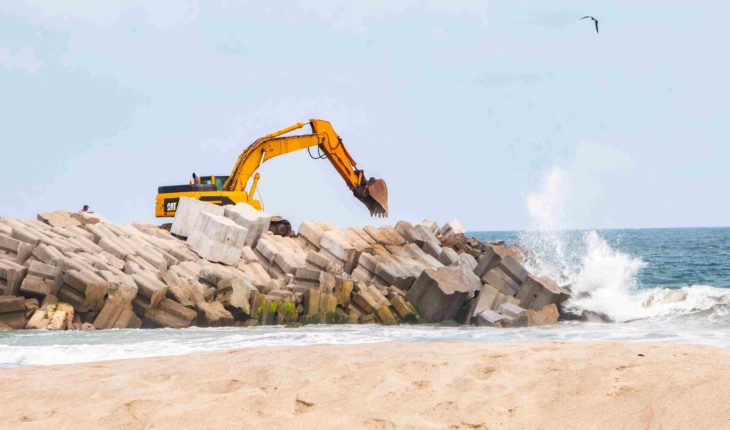at the hearing on the rights of Afro-descendants of the 169 session of the Inter-American Court of human rights and afromexicanas, IACHR, civil society organizations reported that the Mexican State still does not recognize in the Constitution to the peoples of African descent, which encourages different impact on their human rights.
Nadia Alvarado rooms, the collective to eliminate racism (cooperate) referred, among those affectations to the specific case of the populations living in the complex of lagoons of Chacahua-Pastoria in the Costa Chica of Oaxaca.
Read: Death of fish and unfinished works left to the fishermen of Zapotalito, Oaxaca, unsupported case of communities settled in this lagoon system, afromexicanas said, is an example of how the lack of constitutional recognition has made impossible to These communities to defend their collective and individual rights to environmental and institutional racism by the Mexican State, which for decades has implemented actions and policies and ignored obligations affecting the Afro-Mexican population and indigenous living in the lagoon.
The diversion of water to supply 110 irrigation district and other places, said the activist, along with the artificial opening of the mouth bar of beautiful Hill in the Decade of the years 70´s have deprived the sulphur, Zapotalito, El Corral locations Cerro Hermoso, Chacahua and the crane of the right of access to environmental goods and services such as clean water.
Since 1995, said Salas Alvarado to the Commissioners of the IACHR, the State knows this problem and it has not taken the necessary measures to resolve it, attacking the right of villagers, to strip them of at least 13 cubic meters of water, which in a way natural came to the lagoon.
“The Mexican State is responsible for environmental racism to the extent that has prioritized other interests on the right to a healthy environment of the Afro-Mexican population that depends on the lagoon.”
Also, noted the COOPERA collective member, “has engaged in institutional racism to disparage local knowledge and ignore the recommendations made by the communities on the use and management of resources and exclude them administration and decision of” decisions, which exposes them to the imposition of projects, under questionable contracts that violate their way of life”.
Disinterest and governmental failure, he accused Alvarado rooms, have resulted in the accumulation of pollutants in the Lake to decrease the productivity and diversity of fish. “In the past ten years, there have been at least three mortalities of fish and they have increased the sources of infection. This affects the five communities that depend on fishing and tourism in the lagoon system, generating a loss of jobs and social unrest”.
He warned, therefore, is urgent repair of the damage to affected families, the works carried out to restore the flow of fresh and sea water to the lagoon system, as well as a study that helps a plan for sanitation and restoration of the ecological balance of l lagoon, involved and in consultation with the affected communities.
In his speech to comment on cases presented by the civil society, the Commissioner of the IACHR Esmeralda Arosemena said that he had never before heard that qualification of environmental racism, but that no doubt well be expressed in the case of the lagoon Chacahua-Pastoria and in how these works affect the lives of Mexicans and Afro-descendant groups.
“The environmental racism is right there because involvement is to their lives, to their economic activity. I wonder what is the approach that has the Mexican Government for a public policy with respect to the area of the affected Lakes, in particular, on how the waters are diverted and how are retained”.
However, in his speech to answer the questions of the Commissioners, the only Mexican State delegation said that, on environmental racism, Mexico has a legal framework to denounce this type of situation and that there is already a group of I work to give follow-up to the recommendations made by the Special Rapporteur of UN on the human right to drinking water and sanitation, who pointed out this problem (of the Lake) and others, who will try to correct in the future.
translated from Spanish: They lead to the IACHR case of projects which have caused the death of fish in the Chacahua lagoon-Pastoria
October 5, 2018 |





